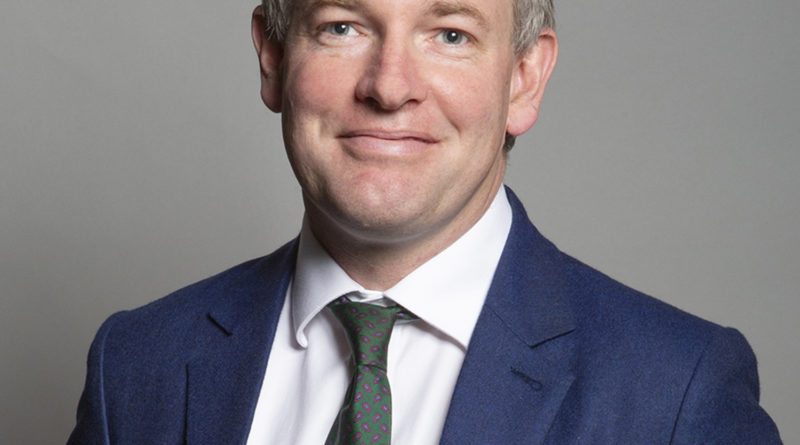Danny Kruger – 2022 Speech on the Child Support Bill
The speech made by Danny Kruger, the Conservative MP for Devizes, in the House of Commons on 9 December 2022.
We are talking about the saddest thing possible, the breakdown of the relationship of a couple with children—and not just the pain of the breakdown, but an ongoing feud that often lasts for years, re-traumatising the children and embittering the parents. We must always remember that the effect of divorce or separation is usually impoverishment, both for the adults involved and for their children—and indeed for elderly parents; they should not be forgotten in this, nor the capital that is lost to them and their future care. The effect on whole families of divorce and separation and the loss of half a child’s adult world when his or her parents separate acrimoniously can often cause a lifetime of emotional damage.
I start by stating plainly that there is nothing more important we can do as a society or in this place than to help people to form stable, lasting and loving relationships, particularly in the context of bringing up children. I am conscious that we spend a lot of time in this place debating means of mitigating the effects of family breakdown, but not a lot of time debating how to prevent the breakdown in the first place. We discuss how to provide ambulances at the foot of the cliff to pick up people who are falling off, but spend very little time discussing how to put fences at the top of the cliff to prevent the damage in the first place.
Nevertheless, when the worst happens, it is right that we do what we can to ensure that the obligations of parents to support their children are upheld. That is why we have the Child Maintenance Service. I want to reflect on the work that the service does. Its work is increasing; as we have been hearing, the CMS manages over 600,000 arrangements for child maintenance, up 9% just in the six months to last December. We have also seen an increase in the collect and pay arrangements—a bad sign in itself—with 37% of the total number of CMS arrangements now managed through collect and pay, up from 30% just a few years before. Compliance is running at around two thirds, which is understandable, but sad and essentially unsatisfactory.
My hon. Friend the Member for Stroud (Siobhan Baillie) mentioned the 2012 reforms, which were partly designed to encourage voluntary and family arrangements, and have been successful in that regard. I agree with her about the success of those reforms and that those arrangements have increased, but we must recognise that the number of separated couples without an arrangement has also increased. According to the National Audit Office, it appears that there is no clear change in the number of families with an effective arrangement in place.
The fact is that only one in three separated families have arrangements that are working and in which payments are made in full. For all the progress that has been made—and I recognise my hon. Friend’s point that the CMS is dealing with very many difficult cases—we still have too many non-payments or payments not made in full. At any one moment, we are all dealing with many cases of constituents reporting their frustrations with the CMS. It is very frustrating for our offices to deal with them, too. I want to quickly pay tribute to my senior caseworker, Camilla Jequier, who is dealing with so many of these cases any one moment—I am sure that we all have a Camilla in our offices battling with the CMS on behalf of our constituents. She does tremendous work, patiently and sympathetically supporting constituents.
I will give a couple of examples on both sides of the parental dispute. A caring parent reports that the non-resident parent has another job and has increased their earnings, with that apparent to HMRC, but the CMS will not increase the payments that the non-resident parent—the father—is making. Another non-resident parent has continued his old business using cash. He is claiming universal credit fraudulently—a CMS financial investigation has confirmed that—but, because the UC claim is in place, it cannot collect the child maintenance that is due. I spoke yesterday in support of keeping cash in our economy, and I very much support that, but I recognise opportunities that that gives for such fraudulent behaviour.
On the other side, there is the case of a paying parent who has been out of work for six months. The collect and pay arrangement has continued, and the father’s home is now under threat because the CMS has not recognised the loss of earnings. There is another case where the CMS is using gross earnings from before the pandemic, not recognising the substantial loss of earnings that that parent has endured in recent years. It is not able to use up-to-date HMRC data.
I reference those as examples of the frustrations that constituents have, while also acknowledging the very good work that the CMS is doing. We do not get reports of good work from Government agencies; we just report the bad ones. However, I am afraid that there are still too many of those.
I support the Bill and pay tribute to my hon. Friend the Member for Stroud, who has been a tremendous campaigner on the issue. It is a good Bill, and I am pleased to see that the Government—and, I am sure, the Opposition—supporting it. It is an important step to ensure that we can improve compliance. I also thank the DWP for its support for this important Bill and for enabling the CMS to do its work better. I hope that we will see the same from HMRC in due course.



